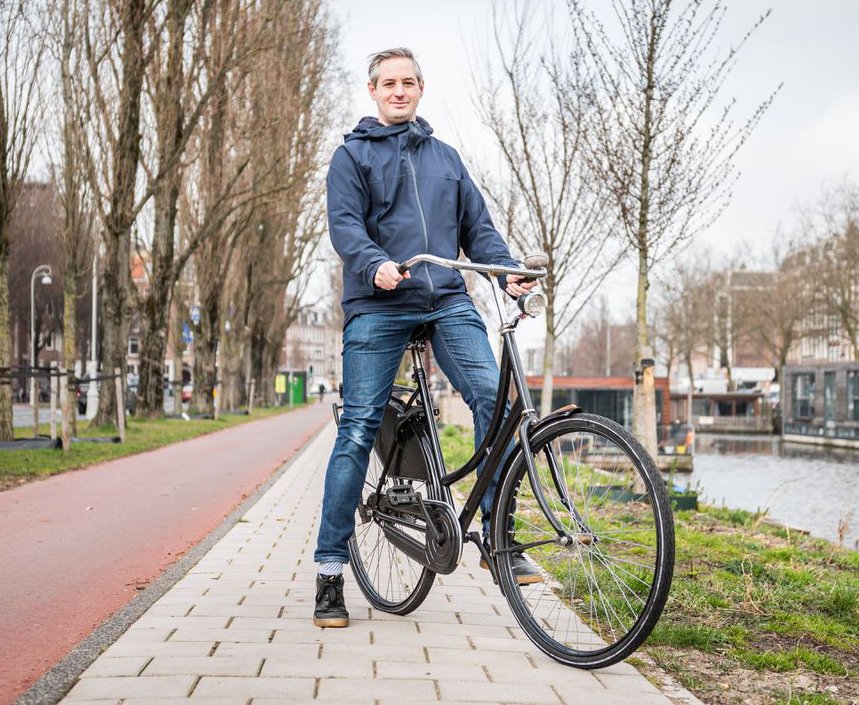When Content Creators Share Strong Towns Ideas, People Listen
There is something about the Strong Towns message that makes millions stop what they’re doing and listen. The people who share them don’t just amass large, enthusiastic audiences. They give a voice to those who struggle to explain why their towns and cities are languishing. And they drive those people to assume a role in fixing it.
If you haven’t already heard of them, let us tell you about Jason Slaughter (creator of the YouTube channel Not Just Bikes) and Nathan Allebach (whose Strong Towns TikToks exploded across platforms).
Jason Slaughter
“I should not be making a video about your city. YOU should be making a video about your city.”
The Story: If Jason Slaughter had done his research before starting the Not Just Bikes YouTube channel, he wouldn’t have started at all, he said. There were lots of creators making the kind of videos he was interested in making. There were lots of “how to make videos” tutorials that warned against Slaughter’s approach of narrating over footage. “Too much like a video slideshow,” they’d say. But he didn’t see that advice, and so it didn’t cause him the self-doubt that may have stopped him in his tracks before he got started.
Slaughter, then working in product management, wanted to try his hand at video. He also wanted to tell people what he had learned in his years-long quest to find a good place to live and raise his children (spoiler: he now resides in the Netherlands). His first post in 2019 began with the phrase, “This is the video I wish I could have seen 20 years ago.” It ends with, “There are lots of good reasons why Dutch cities are so great: and it’s not just bikes.”
Over the next year, he gained a following while explaining what those reasons are. And when he discovered Strong Towns and began incorporating the movement’s insights into his videos in 2020, the whole operation exploded. More than 800k subscribers, 80k Twitter followers, and millions of likes later, telling people about how to overcome the destructive, wasteful development patterns of North America through Not Just Bikes is his full-time gig.
Nathan Allebach
“When I found Strong Towns, I discovered a language and a context for so much of what I experienced growing up.”
The Story: Nathan Allebach was raised in Souderton, Pennsylvania, but he grew up in Phoenixville, a decent bike ride away. That’s where all the punk house shows were. That’s where the downtown was seeing some reinvestment and reinvigoration, unlike the one he lived closer to.
When he found Strong Towns, he found a new way to explain why he felt isolated in Souderton, and excited by Phoenixville—a way to explain why the gathering spaces he grew up in weren’t around anymore. When he began sharing these new insights about zoning, street design, and development on his TikTok, people stopped scrolling and started watching. More than a million people saw one of his videos about third places.
Although Allebach has a background in marketing and social media, he described this pursuit as more of a personal one than a professional one. “You can kind of tell in those videos that I’m just casually figuring out what to say,” he said.
And while he sees lots of creators out there discussing Strong Towns ideas, he also sees opportunities for more voices to join the conversation. Allebach says that people are excited by the empirical approach Strong Towns takes in describing their experiences—and in showing a path to a better one.
“If you want to get engaged, this is a place you can succeed,” he said.
When Strong Towns ideas reach more and more people, great things happen. And you can make that happen in your community (any beyond) by finding fresh ways to share them yourself.



Lauren Ronnander, the Director of Communications for Strong Towns, is an actual idealist who loves making things and double-spacing the end of sentences. Before joining the Strong Towns team in 2020, she worked as a journalist and an editor. She lives with her husband and an almost uncountable number of animals (including cats, dogs, sheep, chickens, and rabbits) in a super-awesome neighborhood in the American Midwest. Her experience in the Alaska Bush, downtown living in an up-and-coming Midwestern city, and now residing in a rural Chippewa Valley, Wisconsin, community has provided her with precious insight into the many ways our places can grow stronger.